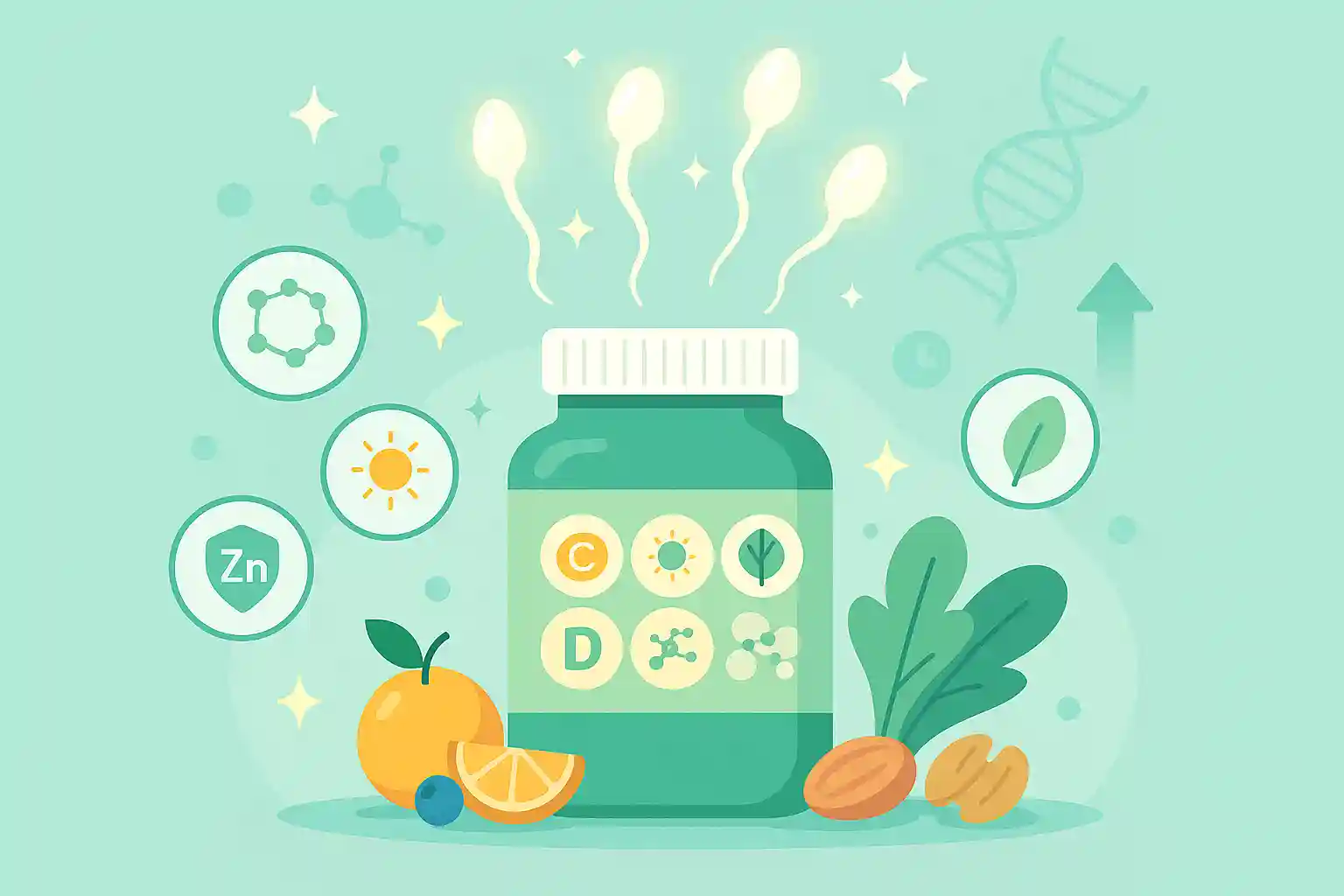Unlike women, who experience a clear fertility decline and menopause, men can technically father children well into their later years. However, this doesn't mean male fertility remains unchanged with age. Research shows that advancing paternal age can significantly impact sperm quality, quantity, and overall fertility potential. Understanding these changes is crucial for men planning families, whether in their 30s, 40s, or beyond.
The Male Biological Clock: Does It Exist?
While men don't have a biological clock as definitive as women's, they do experience gradual fertility decline. Unlike the dramatic hormonal changes women face during menopause, male fertility decline is more subtle and varies significantly between individuals. However, the evidence is clear: age does matter for male fertility.
Sperm production continues throughout a man's life, but the quality and characteristics of that sperm change over time. These changes can affect not only the ability to conceive but also pregnancy outcomes and the health of offspring.
How Sperm Changes with Age
As men age, several key aspects of sperm health are affected:
- Sperm Count: Gradually decreases by about 0.7% per year after age 35
- Sperm Motility: Swimming ability declines, making it harder for sperm to reach the egg
- Sperm Morphology: More abnormally shaped sperm are produced
- DNA Fragmentation: Increased genetic damage in sperm cells
- Hormone Levels: Testosterone and other reproductive hormones slowly decline
Age-Related Fertility Milestones
While individual variation is significant, research has identified general patterns of how fertility changes at different life stages:
Under 35 Years:
- Peak fertility years with highest sperm quality
- Fastest conception times
- Lowest risk of genetic abnormalities
35-39 Years:
- Gradual decline in sperm parameters begins
- Slightly longer time to conception
- Still considered good fertility potential
40-49 Years:
- More noticeable decline in sperm count and motility
- Increased DNA fragmentation
- Higher risk of pregnancy complications and miscarriage
50+ Years:
- Significant fertility decline
- Increased risk of genetic disorders in offspring
- May require fertility assistance for conception
Beyond Conception: Risks to Pregnancy and Offspring
Advanced paternal age doesn't just affect the ability to conceive—it can also impact pregnancy outcomes and child health:
- Increased risk of miscarriage
- Higher chance of genetic disorders (autism, schizophrenia)
- Greater risk of birth defects
- Potential for chromosomal abnormalities
- Increased pregnancy complications for partners
Factors That Accelerate Fertility Decline
While age is inevitable, certain lifestyle factors can accelerate fertility decline:
- Smoking and excessive alcohol consumption
- Poor diet and obesity
- Chronic stress and lack of sleep
- Exposure to environmental toxins
- Sedentary lifestyle
- Certain medications and medical conditions
Protecting Fertility as You Age
While you can't stop aging, you can take steps to maintain optimal fertility:
- Maintain a healthy weight through balanced diet and exercise
- Quit smoking and limit alcohol consumption
- Manage stress through relaxation techniques
- Get adequate sleep (7-8 hours nightly)
- Take antioxidant supplements (after consulting with healthcare provider)
- Avoid excessive heat exposure (hot tubs, saunas)
- Consider sperm banking if planning to delay fatherhood
When to Seek Help
Consider consulting a fertility specialist if:
- You're over 40 and have been trying to conceive for 6 months
- You're over 35 and have been trying for a year
- You have concerns about sperm quality or count
- Your partner is also of advanced maternal age
- You want to explore sperm preservation options
The Bottom Line
While men don't face the same dramatic fertility decline as women, age does impact male fertility in meaningful ways. The good news is that many men remain fertile well into their later years, and lifestyle modifications can help preserve fertility potential. If you're planning to father children later in life, understanding these changes and taking proactive steps can help optimize your chances of conception and healthy outcomes.
Remember, fertility is a complex interplay of many factors, and age is just one piece of the puzzle. Working with healthcare providers can help you understand your individual fertility status and create a plan that works for your family planning goals.


